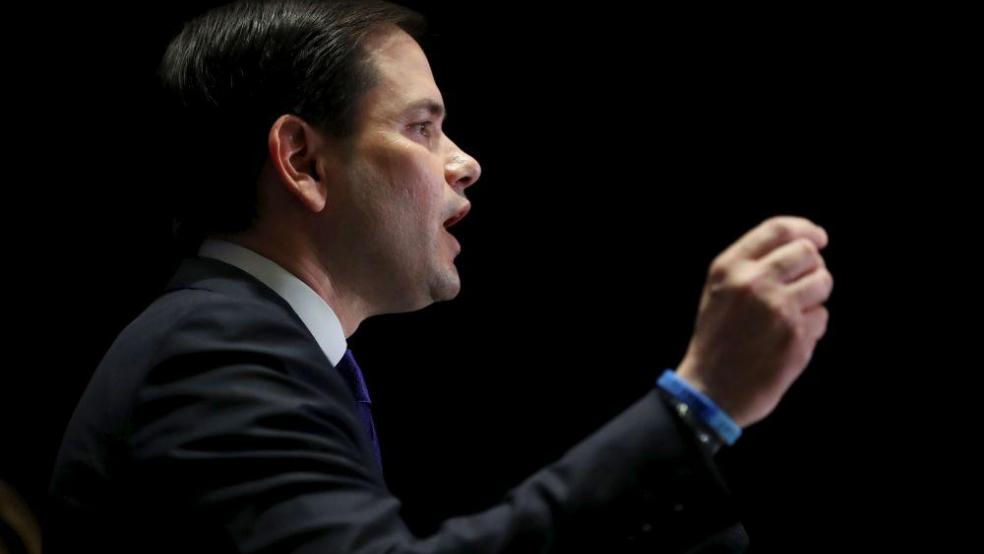Sen. Marco Rubio (R-FL) tackled the decline of the American dream in an essay published by The Atlantic Thursday, and in doing so offered some sharp criticism of the 2017 Republican tax overhaul – a bill he voted for, as many critics quickly pointed out.
Rubio said that while the old corporate tax structure was obsolete and needed to be redone, its replacement does little for the average citizen. The problem, Rubio said, is that the tax overhaul was working with faulty assumptions:
An outdated conception of the economy: “When conservatives think of business tax cuts, we too often think that corporations are all like General Motors in the 1950s—functioning, productive companies making American goods with American labor. That’s just not how it works anymore. Many large corporations today act more like financial assets, allocating capital as if their stock price and dividend payout were the firm’s products instead of the goods or services that drove their success to begin with.”
Corporate tax cuts don’t guarantee investment: “Trusting in a corporate tax cut alone to generate innovation and boost productivity is the thinking of the past. A corporate tax-rate cut makes all corporate assets more valuable, causing a bigger return to investment no matter how it is used. In our globalized and financialized economy, though, it’s as likely to induce stock buybacks as it is to spur the construction of new American factories.”
Share buybacks come at the expense of investment: “When a corporation uses its profits to buy back stock, it is actively deciding that returning capital to shareholders is a better activity for business than investing in the company’s product or workforce. The tax preference for buybacks tilts the scale in this direction, creating a bias against productive investment. We shouldn’t be surprised that an economy that encourages indefinite financialization over confidently making big bets on building the future has yielded a work life that is fractured, unstable, and low paying.”
So what does Rubio want? Among other things, the senator wants to change the tax code so that it rewards productive investment more than financial maneuvers such as share buybacks. Specifically, Rubio argues that the U.S. should “expand and make permanent the full-expensing provisions from last year’s tax-law and end the tax code’s favoritism for companies that spend their tax cuts on stock buybacks.”



